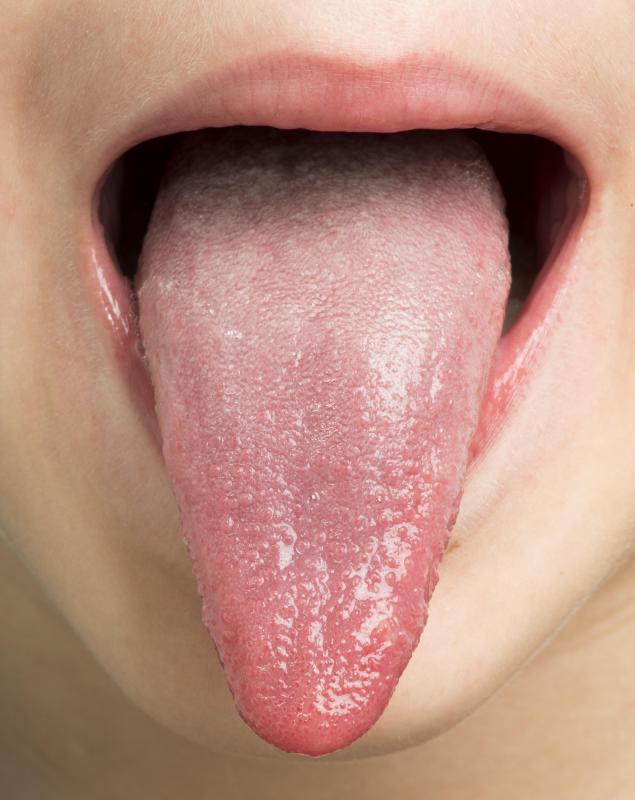At TheHealthBoard, we're committed to delivering accurate, trustworthy information. Our expert-authored content is rigorously fact-checked and sourced from credible authorities. Discover how we uphold the highest standards in providing you with reliable knowledge.
What is Dysgeusia?
Dysgeusia is a medical disorder that causes an abnormal taste in the mouth. While any individual may have a strange taste in her mouth from time to time, this condition causes a taste change that is both persistent and unpleasant. Those with the disorder often describe the taste change as metallic or foul. Some people describe it as salty, rancid, or just plain bad.
Most people are well aware that their taste buds allow them to taste food. It is the cells in the taste buds that are responsible for collecting information about taste and sending it on to the brain, however. Interestingly, the majority of human perception of taste and flavor results from smell-related nerve cells, and people with dysgeusia sometimes note changes in smell as well. Taste cells are responsible for identifying whether food tastes sour or sweet or is salty or bitter, but flavor perception subtleties are often influenced by the sense of smell.

In most cases, the symptoms of dysgeusia last only temporarily. Illnesses like colds, influenza, and sinus infections are fairly common, but temporary, causes of the condition. Smoking, dry mouth, and nutritional deficiencies are other causes. Dental conditions, damaged taste buds, migraine headaches, and certain medications may cause it as well. Pregnancy is another common cause of dysgeusia, as hormonal changes may lead to the disorder; in pregnancy, the condition often causes a sour or metallic taste. Additionally, people with brain tumors, depression, and head injuries may also suffer from this taste disorder.

To diagnose dysgeusia, medical professionals typically perform an examination and request the medical history of the patient. They also ask questions about the patient's symptoms, including how long they have been noticeable, the type of taste change the patient has noticed, and details of any conditions or possible causes the patient may note. In some cases, doctors may recommend testing of the taste and smell senses; this may include tasting chemicals intended to produce certain tastes. Doctors may also ask patients to scratch and sniff special cards in order to test the sense of smell.

Treatment depends on the cause of the disorder. For example, if a person has a cold or flu, she may simply wait for her sense of taste to return to normal following the illness. Otherwise, doctors may choose to treat the underlying condition causing the change in taste. If smoking is at fault, quitting may help. In some cases, a person's nerve cells may have been damaged beyond repair; if that occurs, the condition is not treatable.
AS FEATURED ON:
AS FEATURED ON:
















Discussion Comments
I've been an alcoholic for decades, began steroid shots to my neck and shoulder, fell down a flight of stairs backward and two years ago developed asgeusia and lost 50 pounds.
I recently had brain surgery and woke up with completely different food likes and dislikes. I used to be a totally Midwestern meat and potatoes kind of girl but now I'm a strict vegetarian. It was not about making a healthy decision for me, but it was all about the way meat now tastes to me.
I experienced this as a copper metallic taste, during the enda of my time as a practising alcoholic; always in the first 48 hours of suddenly going 'cold turkey' to sober up and in the seconds before an alcoholic withdrawal fit/seizure.
I've been 100 percent sober for a long time now, by the grace of God and continuing membership of an anonymous self-help organization for alcoholics. I'd be interested to hear of other people's experiences.
Post your comments